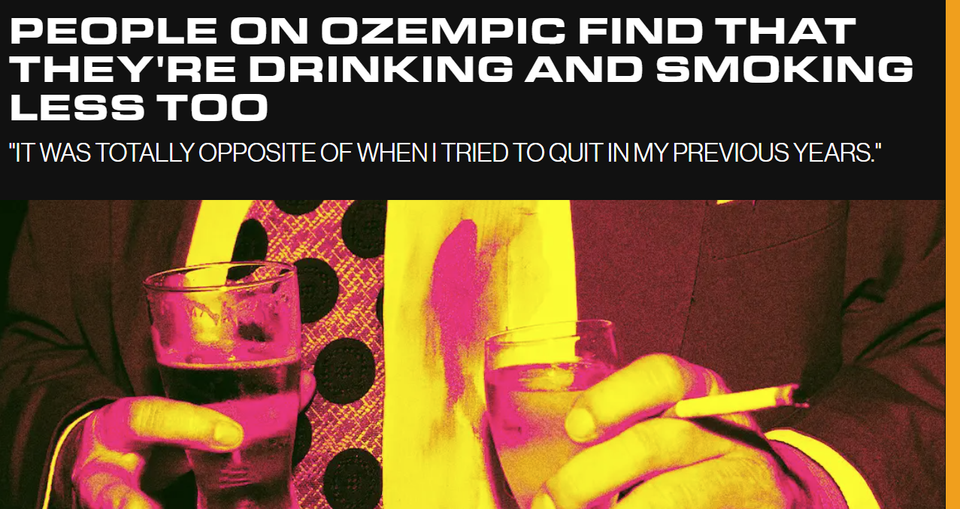In an Obesogenic and Addicted World: GLP-1s are the New Bitcoin

Hello Peptide Enthusiasts!
In today's obesogenic landscape, where the battle against excessive food intake and addiction feels like an uphill climb, a groundbreaking development is turning heads and changing lives. Enter GLP-1 receptor agonists—peptides initially celebrated for their role in managing diabetes and obesity, but now heralded as a revolutionary force against alcohol consumption and addiction.
What Are GLP-1s?
GLP-1, or glucagon-like peptide-1, is a hormone involved in glucose metabolism, insulin secretion, and appetite regulation. These nifty peptides, when mimicked by medications such as semaglutide (brand names Ozempic and Wegovy), have shown impressive results in promoting satiety and reducing food intake. But here's where it gets even more exciting: GLP-1s are now being explored for their potential to curb alcohol consumption.
article here: https://futurism.com/neoscope/ozempic-drinking-smoking-less
Reducing Alcohol Consumption with GLP-1s
The journey of GLP-1s from diabetes clinics to the front lines of addiction treatment is nothing short of remarkable. Researchers have discovered that GLP-1 receptors are not only found in the pancreas but also in brain areas linked to reward and addiction. This means that GLP-1 agonists could modulate the brain's reward system, reducing the desire for alcohol in a similar fashion to how they reduce food cravings.
Studies have shown promising results. For example, rodent models conditioned to consume alcohol showed a significant decrease in alcohol intake when treated with GLP-1 agonists. Early human studies also suggest that these medications can reduce the rewarding effects of alcohol, helping individuals lower their consumption levels (JumpstartMD) (NIAAA).
The Dual Benefit: Weight Loss and Reduced Alcohol Intake
One of the standout advantages of GLP-1 medications is their dual impact. Patients using these drugs for weight management report not only reduced appetite and food intake but also a diminished desire for alcohol. It's like hitting two birds with one peptide—helping individuals combat obesity while also tackling alcohol use disorder (AUD) (NIAAA).
The Future is Bright
The potential of GLP-1s in treating AUD is still being explored, but the results so far are encouraging. As these medications are already approved for other conditions, their safety profile is well-documented, which could expedite their application in addiction treatment. Comprehensive clinical trials in humans are necessary, but the groundwork laid by animal studies and preliminary human research paves a promising path forward (JumpstartMD) (NIAAA).
Wrapping Up
GLP-1s are not just the future—they are the present, reshaping how we approach weight loss and addiction. As we continue to uncover the vast potential of these peptides, their role in providing freedom from both overeating and excessive drinking becomes increasingly clear. In an obesogenic and addicted world, GLP-1s truly are the new bitcoin, offering a kind of liberation we've never experienced before.
Stay tuned for more insights and breakthroughs in the world of peptides. Until next time, stay healthy and stay informed!
Yours in peptide power,
Sean Davis
Editor, The Peptide Insider